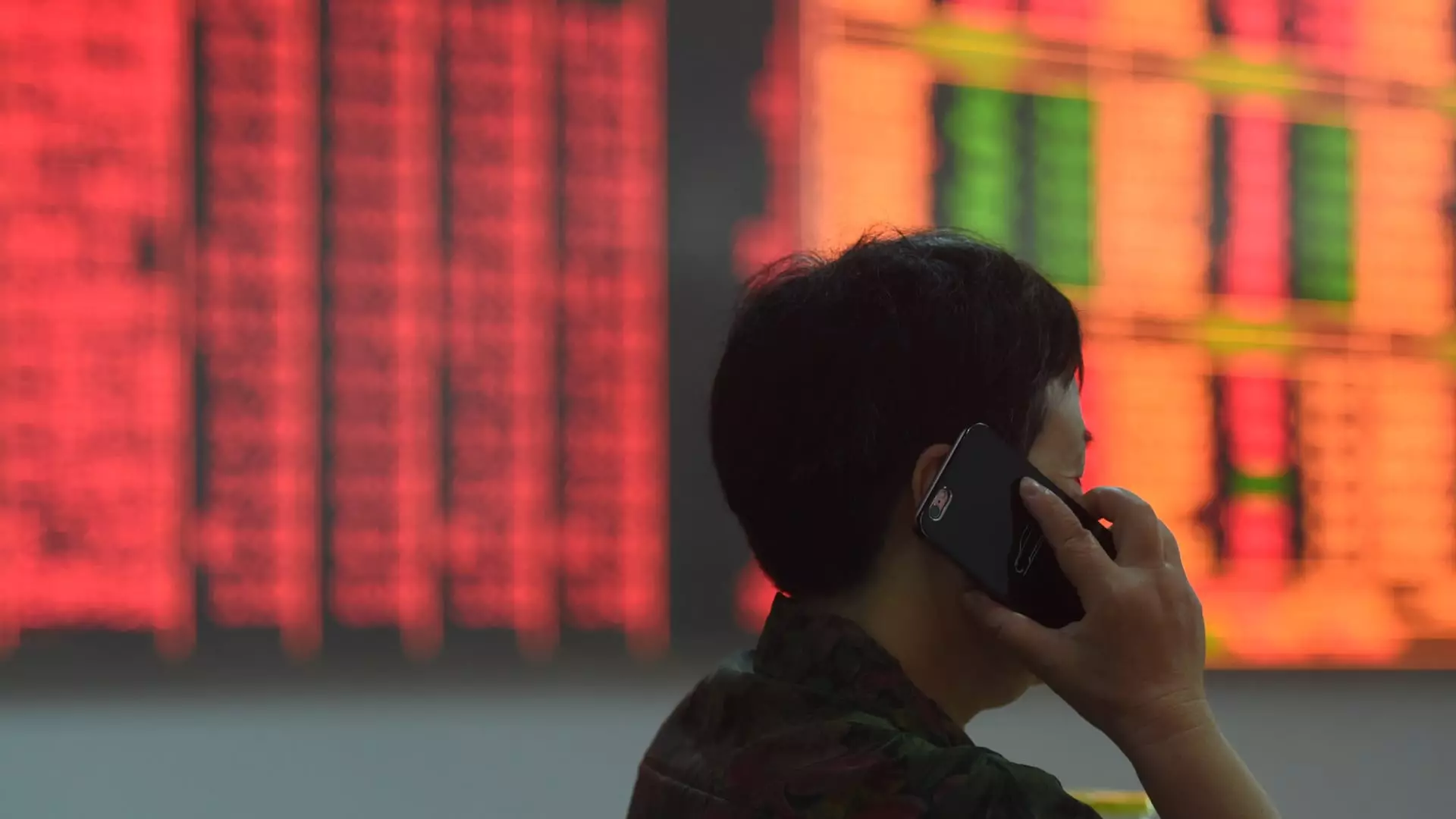The Chinese economy, the world’s second-largest and a key player in global markets, currently finds itself in a precarious position. Recent governmental signals aimed at bolstering sentiment may momentarily uplift markets, but they do little to address the underlying structural issues that persist, particularly in the housing sector. This delicate interplay between policy adjustments and market perception has attracted the attention of analysts and investors alike, who are attempting to decipher the economic landscape shaped by these new measures.
On one hand, the Shanghai Composite Index recently surged to a three-month peak, a fluctuation attributed to heightened sentiment following President Xi Jinping’s convening of a Politburo meeting focused on economic concerns. The meeting’s conclusion emphasized the urgency of reversing the decline in the property market while also reinforcing the efficacy of prior monetary easing measures by the People’s Bank of China. Yet, this meeting fell short of delivering concrete action plans, leading to skepticism among seasoned economists. Ting Lu, Nomura’s chief China economist, points out that although these moves reflect an acknowledgment of the unfolding economic difficulties, they represent only a superficial effort at resolution.
At the heart of the Chinese economic downturn lies the real estate sector, which has faced a prolonged contraction lasting four years. Despite government intentions to stimulate recovery through increased financial support, analysts warn that the impact may be limited. Lu argues that in a rushed effort to roll out stimulus packages without thorough planning, the government risks implementing measures that do not yield substantial economic growth. This apprehension is further underscored by the faltering retail sales—barely rising above 2%—and stagnation in industrial profits during the initial months of the year. For investors, a key consideration remains the specifics and adequate structure of any proposed stimulus initiatives if they are to spark meaningful recovery.
The Lingering Shadow of Consumer Confidence
Even with the cutting of major interest rates and the promise of support for existing mortgage borrowers, consumer confidence appears to be a significant roadblock on the path to recovery. Many consumers report a hesitance to engage in borrowing, underscoring a climate of fear that clouds financial decision-making. Wealth management executive Paul Christopher emphasizes that mere rate cuts may not suffice to allay consumer apprehensions. In fact, skepticism about the government’s commitment to longer-term solutions persists, as outlined by Christopher’s observation of the cautious stance many investors are adopting regarding emerging market equities.
Corporate Sentiment and Market Challenges
The response to the broader investment environment reveals further complexities. Although recent meetings and financial maneuvers seem to stir some optimism among investors, the reality remains grim. A survey from the China Beige Book indicates a decline in corporate borrowing, even at record low interest rates. Shehzad Qazi, COO at the China Beige Book, articulates a cautious hope for a modest uptick in retail spending over the next few months. Still, complexities abound in the stock market, with the expectations surrounding planned fiscal stimulus initiatives remaining largely unfulfilled, sowing uncertainty among stakeholders.
Polarities in Investment Sentiment
Despite these challenges, the sentiment dynamic is not entirely pessimistic. Some investors are capitalizing on the recent lows in Chinese markets. The CSI 300 stock index has shown a remarkable rebound, with predictions suggesting it could experience a further rise of 10%. A notable conversion in investor outlook has been described by hedge fund founder David Tepper, who recently increased his holdings in Chinese stocks. The consensus among some analysts indicates that while the announcements from state policymakers are recognized, the pathways to unlocking a robust capital market remain uncertain.
A Roadmap for Effective Policy Implementation
The International Investment community is acutely aware that for China to regain momentum, it is imperative to establish a well-functioning capital market. Investment expert Bruce Liu notes that a clear understanding of this need is crucial for long-term growth and stability. While the recent policy gathering did communicate urgent intentions of supporting capital markets and reversing negative perceptions, translating these intentions into actionable frameworks remains the crux of the matter. Analysts stress that sustainable growth requires a balanced combination of sentiment-boosting measures and strategic economic planning aimed at addressing deep-rooted issues in sectors like real estate and consumer confidence.
As China navigates this economic quagmire, the juxtaposition of policy signals and market sentiment offers both hope and skepticism. While temporary market rallying is welcomed by investors, the underlying systemic challenges in the property sector and consumer confidence loom large. The path ahead may be fraught with obstacles, but the government’s response to the mounting pressures may ultimately dictate whether China’s economy can rebound, transitionally stabilize, or spiral deeper into uncertainty. A blend of intelligent, proactive policy measures and a restoration of consumer confidence will ultimately be the cornerstone for sustainable growth in this complex economic ecosystem.


Leave a Reply